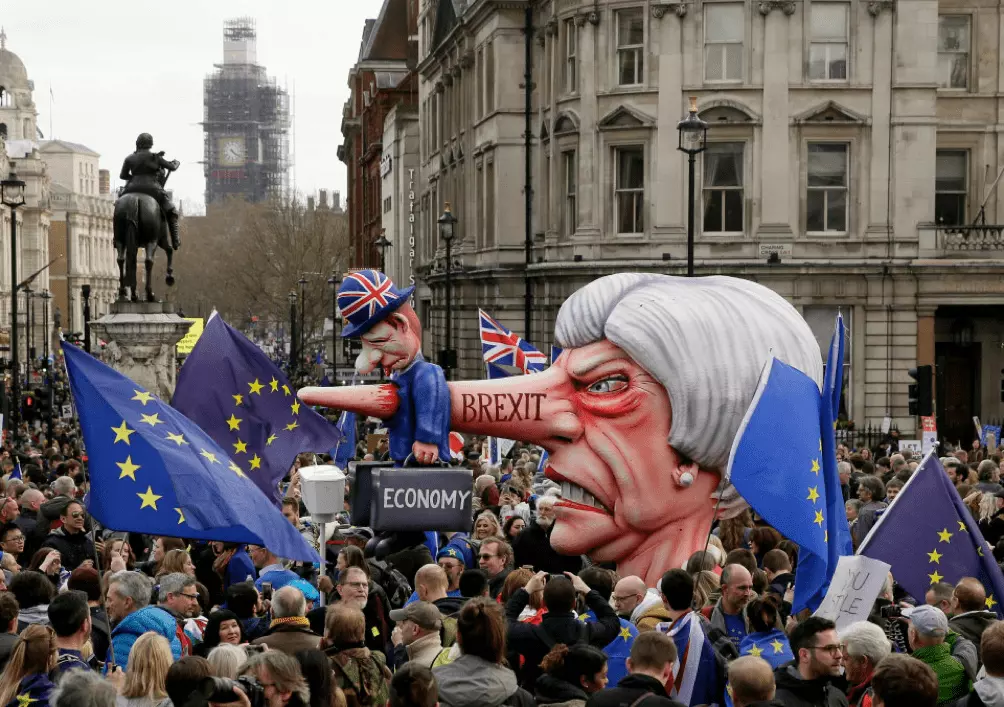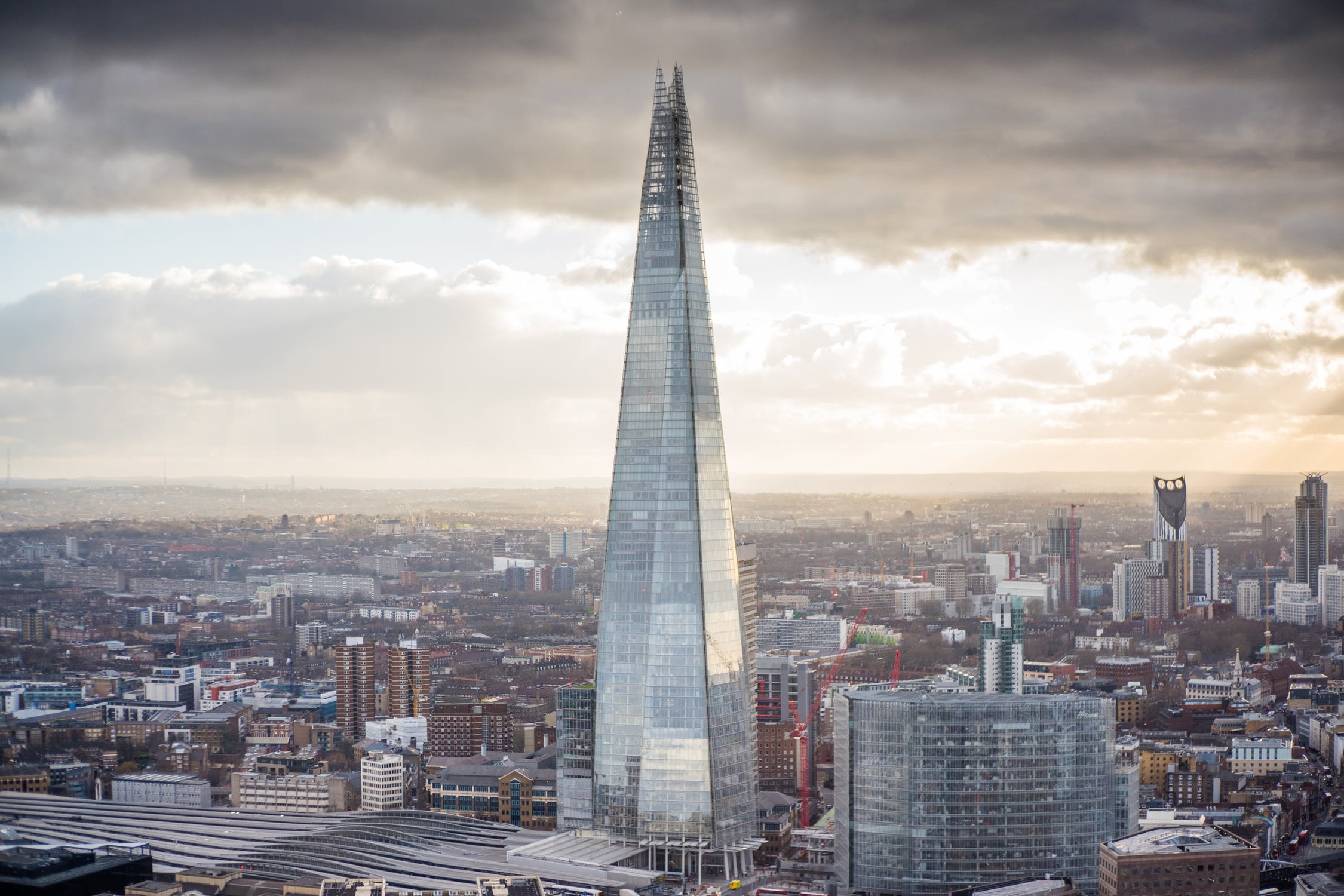The Brexit Scrum and Bracing for Impact
For the Brexit weary, once again the official Brexit deadline:
29 March 2019 – 11 pm
Today is the day that Great Britain was expected to leave the EU.
After almost 3 years of intensive Parliamentary debate and discourse, the end is not near in sight and up to now has yielded absolutely nothing, except for the triggering of Article 50, the relevant clause of the Lisbon Treaty that outlines the official process for any EU member state to leave the European Union voluntarily.
Only two days ago, amidst the Brexit deadlock and endless bickering in the turbulent final days before the official Brexit departure date, members of Parliament rejected 8 different proposals on Britain’s withdrawal from the European Union. These plans ranged from a “No Deal” Brexit to holding a second referendum after the million march in London on 23 March 2019, and a government petition signed by more than 5.8 million people, almost 9% of the UK’s population.
In an unexpected move, Parliament rejected the Brexit petition to revoke Article 50 stating that stopping Brexit would “break promises” and undermine both “our democracy and the trust that millions of voters have placed in the government”.
Speaker of the House of Commons MP John Bercow added further drama and dilemma to the Brexit impasse by reviving a 415 years’ old convention dating back to 1604 that prevents “attrition”, the process of wearing down elected politicians by presenting the same unchanged bill repeatedly while the clock runs down. And by doing so, House Speaker Bercow stopped Prime Minister Ms May from attempting to try to pass her controversial and materially unchanged Brexit bill for a 3rdtime, even that her previous two attempts were voted down by a very wide margin each time around. Somehow, Ms May must assume that a third time would persuade MPs - suffering from “Brexit fatigue” - will suffice to pass her highly contested bill in a third round of voting. What an ignorant assumption and epic mistake to make.
To persuade her own party and staunch “Brexiteers” - the transformed former “Eurosceptics” of glory days gone by - Theresa May, in a last ditch attempt to break the deadlock, has offered to resign and stand down as Prime Minister if her Brexit deal is passed today in Parliament, a move many consider bold, risky and unlikely.
As the clock is running down, the world is eagerly watching to see if the UK will crash out of the European Union without a deal, commonly referred to as a “Hard Brexit”. And no matter what happens now, the damage has already been done. The economy is already suffering from the vacuum left by big businesses not investing as well as moving operations out of the UK, and big banks having already left for the safer shores of the banking capitals of the European Union – Paris, Frankfurt, Dublin, Luxemburg and Amsterdam.
All the while, the Brexit ball is lost in the Westminster scrum that has totally engulfed and captivated not only Parliament, but an entire nation and the world at large.
For a stable democratic government not to be able to come to an agreement within its own ranks is unprecedented and testimony to the lack of cohesion and support within the leading political parties, revolting backbenchers and a few renegade factions.
As Britain is edging towards the Brexit cliff tonight, with staunch Brexiteers and hopeful remainers divided along hard front lines and seismic fault lines, it appears that Britain will crash out of the EU without a deal and suffer the consequences of an indecisive and ineffective Parliament.
In short, almost 3 years of Brexit discord and debacle for nothing.
Buccaneers and Brexiteers – A Legacy of the British Empire?

“Better a horrific ending than a never ending horror”
Quote: German Chamber of Commerce on Brexit
On June 23rd2016, a total of 17,410,742 (51.9%) British voted for Brexit in a nationwide referendum put forward by Conservative Prime Minister David Cameron, a fulfilment of a promise he made during his campaign for the 2015 UK General Election. Shortly after the surprise and unexpected Brexit result, David Cameron resigned and was then succeeded by his former Home Secretary Ms Theresa May.
UKIP Leader Nigel Farage and fanatic Brexiteer Boris Johnson also abandoned ship right after the Brexit vote, with Boris – the impeccable buffoon – resurfacing as Foreign Secretary for the British government, handpicked by Ms May herself, an epic mistake that most likely will lead to the end of her own political career. Just today, Boris Johnson announced his candidacy to become Prime Minister and replace Ms May at 10 Downing Street, which announcement did not really come as a surprise but was rather expected.
Regardless of the reluctant acceptance of the Brexit outcome, the government’s duty, after the Brexit vote and the triggering of Article 50, is to ensure that all measures are put in place to fulfil the will of its people, the 51.9% majority that voted for the UK to leave the European Union.
Almost 3 years down the road, and the UK is still completely unprepared for exiting the EU while at the same time facing a Brexit crisis of epic proportions that could lead to an economic collapse in the interim. The EU in the meantime has pretty much lost its patience and all but given up hope, publicly stating that the Brexit issue is now fully “in the hands” of the British Parliament and no one else. And they are right about that.
After being part of the European Union for 46 years, the relations from both sides are so intertwined that it cannot simply be untangled within the 2 years prescribed by Article 50 of the Treaty on the European Union.
Going back in time, many will not know or recall that Greenland, which at the time was a county of Denmark, joined the European Community (as it was named at the time) in 1973.
By 1982 Greenland voted to leave the EC (by a majority vote of 53%) over a fishing rights’ dispute and in 1985 it finally left, a full 3 years after the referendum.
If an insignificant economy such as Greenland takes a full 3 years to leave the European Community, what can be expected of the United Kingdom, a major EU member country with strong political influence within the EU and the 5thlargest economy in the world with a GDP of USD 2.982 trillion?
Apart from the gargantuan task of “disengaging” Britain from the EU as well as the unforeseen complications with regards the Irish border and the “backstop” provision in Ms May’s ultimate Brexit deal that will be voted on today, how can Parliament decide with an overwhelming majority on any Brexit deal without knowing the implications and consequences of such a vote? A positive outcome is what everyone is hoping for; a negative outcome is what everyone is expecting, even from diehard Brexiteer Boris Johnson and consorts.
Another aspect that seems to have been forgotten in the present ramblings of Brexit and the EU, is that the latter was formed – along with NATO in 1949 and the United Nations in 1945 – after the Second World War with the main purpose of establishing a common market and also to prevent another major war from happening on European soil. Apart from the Balkans war, Europe enjoyed relative peace and stability for more than 70 years and this is the greatest testimony to the success of a unified Europe, under the auspices of the European Union, and by extension NATO and the United Nations.
Democracy and The People’s Choice
End the Chaos – a campaign by the indefatigable remainer Gina Miller is gaining ground, simply because if parliament cannot come to a Brexit conclusion, it should be left to the British people to decide on the future of their country.
But is it fair and democratic for the 48.1% minority of “remain” voters to try to reverse a national vote, simply because these voters didn’t like the outcome of the referendum and because the UK government cannot decide either way on Brexit?
Perhaps in this particular case and under these precarious circumstances, a second referendum is actually the only option left. Allow the vote to be put out again to the British people and make it final and definitive, without any interference by Parliament or the British government.
The main reason for another referendum proposal, is that during the first referendum, the British electorate was misinformed on all fronts, David Cameron saying that WW3 would be upon us and Boris Johnson claiming that £350 million weekly to the EU could be diverted to the NHS instead. And who would not approve of such a great income stream towards the NHS? Much needed funding to better the lives of NHS patients, improve the working standards of NHS staff and increase the maintenance and daily operations of underfunded hospitals. This however never materialised as government spending is not decided by one single MP and his personal political agenda, but Boris Johnson took advantage of the weak and vulnerable voters - who are dependent on the NHS to provide for better healthcare - to advance his campaign for Brexit, driving around in a big red bus across the country to garner support for the leave campaign. This was a downright disgrace by Boris Johnson, for taking unashamedly advantage of the British people who were misled and misinformed on Brexit and its implications on the economy and society as whole.
Reversing a democratic vote is fundamentally wrong and a big risk to consider, as it could lead to civil unrest, violent protests and riots but it’s a risk worth taking. Crashing out the European Union without a deal can cause more harm, economically and politically, than another referendum and therefore it’s better to vote on a second but final referendum. Misinformation of the public should not be followed by an ill-conceived and unprepared Hard Brexit, but rather thoughtful and deliberate reconsideration of all options before it’s too late.
Democracy has been derailed by the lies of the few and a Parliament stuck in a political power struggle, therefore it’s high time for the British people to take matters into their own hands and decide on the future of Britain and for the generations of Britons to come.
The clock is ticking and time is running out.




Leave your comments
Post comment as a guest